Reviews
Baisers volés
François Truffaut
France, 1968
Credits
Review by Victoria Large
Posted on 09 April 2010
Source Criterion Collection DVD
Stolen Kisses is not the most well known of François Truffaut’s Antoine Doinel films, nor the most influential, but it is the funniest of the bunch, and, perhaps not coincidentally, the one that I think of with the greatest affection. It’s a film that feels light, not because it lacks substance, but because there’s something effortless about how it unfolds. Its seemingly out-there conceit, which finds Truffaut’s erstwhile juvenile delinquent Antoine turning to a career as a private detective, is an easy sell in the context of its sprightly comic dialogue and warm performances. The film also finds Truffaut at his most playful as a director. He occasionally misdirects the audience with his camera — leisurely moving down a hallway as sensuous music plays, only to turn into, and quickly out of, an empty boudoir — and co-opts the suspense movie hallmarks of his hero Alfred Hitchcock for comic purposes, using loud musical flourishes to punctuate scenes meant to make us laugh rather than scream.
When we catch up with Antoine he’s being dishonorably discharged from the military for “instability of character.” A gentle smile plays across his lips as his commanding officer scolds him for being constantly AWOL, “like a dog that goes anywhere but where it’s called.” Of course, Antoine’s instability of character has been the most interesting thing about him since we first saw him run away from home in The 400 Blows, and it’s the reason that we watch with such great interest as he dodges traffic in Paris on his first day of freedom, bound to wind up in more trouble.
This time around the trouble is mostly droll, with Antoine trying his hand at a number of vocations in an attempt to adjust to civilian life. He makes for a laughable private detective in his first assignments, appearing anything but inconspicuous as he hides behind a newspaper while following a woman down the street, thoroughly creeping her out in the process.
Jean-Pierre Léaud, now in his mid-twenties, is a joy to watch as Antoine. He’s grown into himself as an actor, honing the comic timing that was already inherent in his performances as a youth. He conveys much of Antoine’s lingering childishness through body language: he tromps across a bed with his shoes on in order to pull up a window shade, and shortly thereafter holds onto his balcony railing while swinging his legs beneath him, like a boy on a jungle gym. Antoine Doinel has occasionally been dubbed an everyman character, but that isn’t exactly right. He’s an overgrown romantic in spite of everything, wide-eyed and always ready to find adventure or love. Léaud captures this quality without descending into grating cuteness.
Over the years, Truffaut himself feared that his creation had become too static, saying in a 1978 interview, “I would be lying if I said that Antoine Doinel was successful in his transformation into a adult. He has not become a real adult, he is someone in whom there remains a good deal of childhood.” There are some definite indications early in the film that Antoine has a great deal of growing up left to do. “You haven’t changed,” his on-again, off-again girlfriend Christine tells him, and in many ways he hasn’t. He’s still on the hunt for the loving family that he missed out on as youth. Just as he insinuated himself into the family of his crush in Antoine and Colette, he has now allowed himself to be spiritually adopted by Christine’s parents (who help him find his first job out of the army). He also listens with great attention to the musings of his cohorts at the detective agency, eager to collect role models where he can find them.
But Antoine does mature throughout his misadventures in Stolen Kisses, particularly, as the title might lead you to guess, when it comes to his views on love. In addition to Claude Jade’s Christine, whose understated poise acts as a nice foil for Antoine’s manic energy here, Antoine finds himself infatuated with Fabienne Tabard, the wife of a man who has hired Antoine as an undercover investigator. Actress Delphine Seyrig brings unexpected warmth to Mme. Tabard, the cool, Hitchcockian blonde who Antoine views as a kind of ethereal ideal. Antoine’s encounters with the older woman fluster and embarrass him — one of the film’s biggest laughs comes when Antoine inexplicably calls her “sir” — but they also help him gain a modicum of wisdom. She teaches him that she isn’t a perfect apparition, just another flawed human being like him, and she asks him to find the beauty in that fact.
Characteristically, Truffaut finds pathos between — and within — the laughs. M. Tabard, owner of a successful shoe business, commissions Antoine’s agency to investigate why no one likes him. It doesn’t actually take a master detective to determine why the arrogant Tabard isn’t well-liked, but there’s still something touching about his unusual request. Another investigation finds a client turning violent after it is revealed that the object of his affection has married someone else. I have previously commented on Truffaut’s striking tendency to mix humor with sadness, and the director wrote about the phenomenon as it relates to Stolen Kisses in the introduction to a 1970 collection of Doinel screenplays. “Once a picture is finished I realize that is sadder than I meant it to be. This happens with every picture. I had expected Stolen Kisses to be a funny picture … In the course of making Stolen Kisses I came to feel that the best of all were the kind of situations that were funny and sad all at once.” This is never more evident than in Stolen Kisses’ final scene, which finds a stranger stepping in as if from another film and attempting to woo Christine with words that smack of the same abstract, idealized understanding of love that we have just watched Antoine begin to overcome. It’s a funny and unexpected note to end on, one that speaks to how Antoine has matured. But it also serves to remind us that we live in a world of loose ends and lonely hearts, where even the airiest of comedies cannot remain untouched by tears.
More Love on the Run: The Films of François Truffaut
-

Les Mistons
1957 -
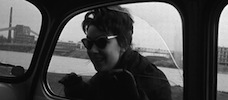
Une histoire d’eau
1958 -

The 400 Blows
1959 -
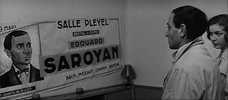
Shoot the Piano Player
1960 -
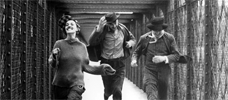
Jules and Jim
1962 -
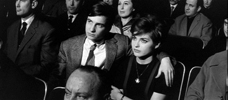
Antoine and Colette
1962 -
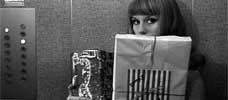
The Soft Skin
1964 -
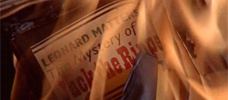
Fahrenheit 451
1966 -
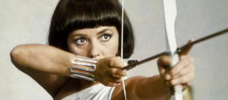
The Bride Wore Black
1968 -
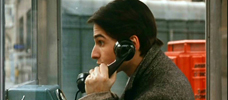
Stolen Kisses
1968 -
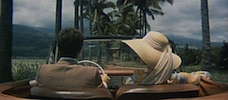
Mississippi Mermaid
1969 -
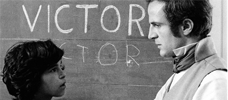
The Wild Child
1970 -
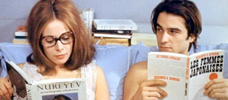
Bed and Board
1970 -
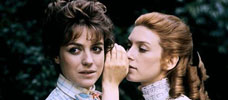
Two English Girls
1971 -
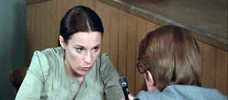
Such A Gorgeous Kid Like Me
1972 -

Day for Night
1973 -
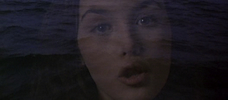
The Story of Adele H.
1975 -

Small Change
1976 -
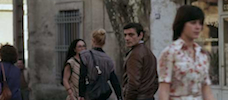
The Man Who Loved Women
1977 -
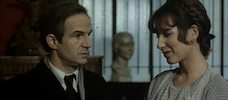
The Green Room
1978 -
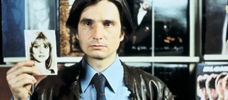
Love on the Run
1979 -
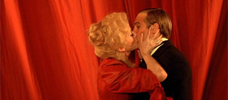
The Last Metro
1980 -
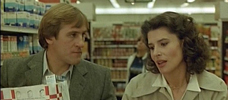
The Woman Next Door
1981 -
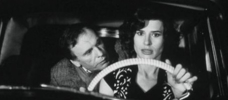
Confidentially Yours!
1983
We don’t do comments anymore, but you may contact us here or find us on Twitter or Facebook.



